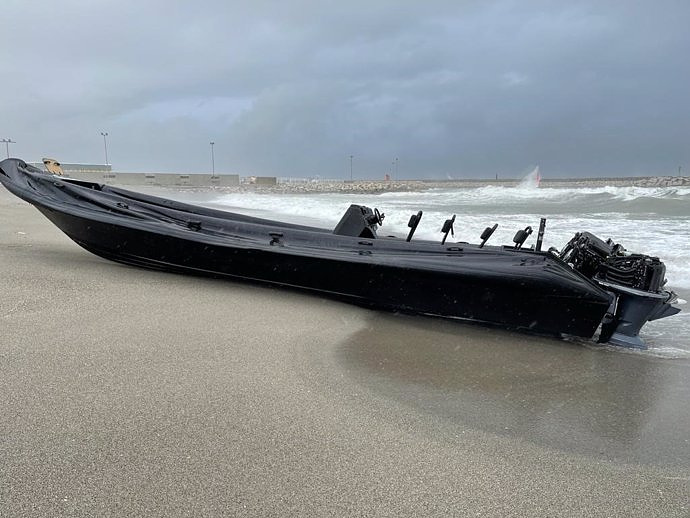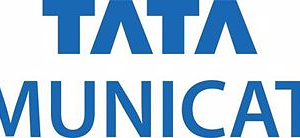MADRID, 14 Feb. (EUROPA PRESS) -
The latest police operations to combat drug trafficking have focused on Portugal and southern Galicia as manufacturing and transport points for the high-powered drug boats used by criminal organizations in the Strait of Gibraltar and the Andalusian coast to transport hashish from the vast majority from Morocco, as police sources informed Europa Press.
The declaration of drug boats as a prohibited genre in October 2018 and the police reinforcement within the Campo de Gibraltar Special Security Plan, which has now just been reissued for the fourth time and which extends to six Andalusian provinces - all the coastal ones plus Seville, along the route taking advantage of the Guadalquivir, allowed the Security Forces to seize these boats even though they were not transporting drugs at the time they were seized.
The data from the Ministry of the Interior reflects that from 2018 to 2023 a total of 1,421 boats used by 'narco' have been seized, boats with characteristics similar to those used in the tragic event in which two Civil Guard agents were murdered. in Barbate when they were attacked.
An operation by the Civil Guard together with the Portuguese Police confirmed this reality in 2022 by dismantling an organization based in the north of Portugal and south of Galicia that was dedicated to the construction of these drug boats. They were manufactured in a warehouse at an industrial estate in Vigo and, later, they were used to introduce large quantities of hashish into the waters of the Strait of Gibraltar.
That Civil Guard operation resulted in 60 detainees, proving that the organization was based in different towns in Pontevedra and the north of Portugal, using transport companies to transfer the boats to secure warehouses in Toledo and Seville, where they had just been equipped. before its launching into the sea on the coast of Andalusia.
The connection with hashish from Morocco was reflected in many other operations, such as the one carried out by the Civil Guard on the Chafarinas Islands when they dismantled an important platform for the projection of drug boats in the summer of 2019, constituting a "maritime nursery" used to transport large quantities of hashish.
Since 2018, when the Plan against 'narco' in the Campo de Gibraltar came into force, almost 20,000 have been detained or investigated for drug trafficking in the south of Spain, including the leaders of the two main clans, that of Abdellah El Haj Sadek, alias 'Messi del hashí', and that of the brothers Francisco and Antonio Tejón, known as 'Los Castaña'.
This police pressure led the 'narcos' to disperse the drug caches, mainly hashish, to areas of the Andalusian coast and the Levant, including "with increasing frequency" Catalonia and even Portugal, as explained last October to Europa Press Ernesto Segura, commander of the Civil Guard at the Regional Center for Analysis and Intelligence against Drug Trafficking (CRAIN).
The 'narcos' use larger and more powerful boats to do so because a good part of their time is spent on the high seas, for which they need to stock up on gasoline and food, with quick portages to the coast to unload the drugs, looking for points alternatives to the usual ones on the beaches of Algeciras and the towns of Cadiz.
"If 1,421 vessels have been seized, the question that should be asked is how many are still circulating under the radar," said a source consulted by Europa Press in the fight against drug trafficking, who recalls that hashish, as is the case with cocaine, It is now sold in Spain at a "noticeably" lower price than a few years ago, which shows that there is a lot of surplus.
Apart from the departure of hashish from Morocco, this police command points out that one of the problems in dealing with 'narco' is that drug boats, although they have been banned in Spain and are confiscated, are still legal in neighboring countries such as Portugal and Morocco.
In October 2022, the National Police reported that it had dismantled another network located on the coasts of Cádiz and Málaga that was dedicated to manufacturing drug boats for the import of hashish from Morocco, for which it rented industrial warehouses in Andalusia, Extremadura, Murcia and Valencian Community.
The narcotic was then transported by road to France, Belgium and the Netherlands. There were 21 detainees and, in addition to 296 kilos of vacuum-packed marijuana buds and hidden among lettuce in a refrigerated truck, another key element in this type of network was seized: 4,200 liters of fuel.
Precisely, the commander of the Civil Guard that is part of the CRAIN warned that the Strait gangs are allying with each other to subcontract services and be able to introduce drugs trying to overcome the police pressure in Campo de Gibraltar, which is why he advocated making changes legislative measures so that the collection of fuel linked to 'narco' is prosecuted criminally, and not only with an administrative sanction.
The concern over the collection of fuel by 'narco' is reflected in 'Operation Gas-ol' in Campo de Gibraltar, which allowed the Police to seize a total of 10,500 liters of gasoline and 1,684 kilos in the summer of 2019. of hashish, as well as four drug boats valued at 120,000 euros each. There were 61 detainees.
The same occurs with the extension of drug trafficking networks through the Levant. In June 2020, three tons of hashish were seized from an organization that manufactured its own drug boats. In fact, two boats prepared to be launched took a ship loaded with bales, which was intercepted and towed to the port of Torrevieja, in Alicante.

 Exploring Cardano: Inner Workings and Advantages of this Cryptocurrency
Exploring Cardano: Inner Workings and Advantages of this Cryptocurrency Seville.- Economy.- Innova.- STSA inaugurates its new painting and sealing hangar in San Pablo, for 18 million
Seville.- Economy.- Innova.- STSA inaugurates its new painting and sealing hangar in San Pablo, for 18 million Innova.- More than 300 volunteers join the Andalucía Compromiso Digital network in one month to facilitate access to ICT
Innova.- More than 300 volunteers join the Andalucía Compromiso Digital network in one month to facilitate access to ICT Innova.-AMP.- Ayesa acquires 51% of Sadiel, which will create new technological engineering products and expand markets
Innova.-AMP.- Ayesa acquires 51% of Sadiel, which will create new technological engineering products and expand markets US Police storm Columbia University and arrest more than a hundred pro-Palestinian protesters
US Police storm Columbia University and arrest more than a hundred pro-Palestinian protesters The PP incorporates the former general secretary of Ciudadanos Adrián Vázquez in its list for the European elections
The PP incorporates the former general secretary of Ciudadanos Adrián Vázquez in its list for the European elections Gamarra (PP) accuses Sánchez of "an exercise in democratic degeneration" to "avoid being controlled by counterpowers"
Gamarra (PP) accuses Sánchez of "an exercise in democratic degeneration" to "avoid being controlled by counterpowers" The May 1 demonstration for full employment begins in Madrid
The May 1 demonstration for full employment begins in Madrid How Blockchain in being used to shape the future
How Blockchain in being used to shape the future Not just BTC and ETH: Here Are Some More Interesting Coins Worth Focusing on
Not just BTC and ETH: Here Are Some More Interesting Coins Worth Focusing on Ivace and promotes a less invasive device for the early detection of prostate cancer
Ivace and promotes a less invasive device for the early detection of prostate cancer Valencia unanimously approves the ordinance to allocate spaces to test innovative initiatives
Valencia unanimously approves the ordinance to allocate spaces to test innovative initiatives UPV researchers promote a paid master's degree as a "talent factory" in integrated photonics
UPV researchers promote a paid master's degree as a "talent factory" in integrated photonics A spin-off of the UV works on obtaining high-resolution 3D biomedical images in real time
A spin-off of the UV works on obtaining high-resolution 3D biomedical images in real time A million people demonstrate in France against Macron's pension reform
A million people demonstrate in France against Macron's pension reform Russia launches several missiles against "critical infrastructure" in the city of Zaporizhia
Russia launches several missiles against "critical infrastructure" in the city of Zaporizhia A "procession" remembers the dead of the Calabria shipwreck as bodies continue to wash up on the shore
A "procession" remembers the dead of the Calabria shipwreck as bodies continue to wash up on the shore Prison sentences handed down for three prominent Hong Kong pro-democracy activists
Prison sentences handed down for three prominent Hong Kong pro-democracy activists ETH continues to leave trading platforms, Ethereum balance on exchanges lowest in 3 years
ETH continues to leave trading platforms, Ethereum balance on exchanges lowest in 3 years Investors invest $450 million in Consensys, Ethereum incubator now valued at $7 billion
Investors invest $450 million in Consensys, Ethereum incubator now valued at $7 billion Alchemy Integrates Ethereum L2 Product Starknet to Enhance Web3 Scalability at a Price 100x Lower Than L1 Fees
Alchemy Integrates Ethereum L2 Product Starknet to Enhance Web3 Scalability at a Price 100x Lower Than L1 Fees Mining Report: Bitcoin's Electricity Consumption Declines by 25% in Q1 2022
Mining Report: Bitcoin's Electricity Consumption Declines by 25% in Q1 2022 Oil-to-Bitcoin Mining Firm Crusoe Energy Systems Raised $505 Million
Oil-to-Bitcoin Mining Firm Crusoe Energy Systems Raised $505 Million Microbt reveals the latest Bitcoin mining rigs -- Machines produce up to 126 TH/s with custom 5nm chip design
Microbt reveals the latest Bitcoin mining rigs -- Machines produce up to 126 TH/s with custom 5nm chip design Bitcoin's Mining Difficulty Hits a Lifetime High, With More Than 90% of BTC Supply Issued
Bitcoin's Mining Difficulty Hits a Lifetime High, With More Than 90% of BTC Supply Issued The Biggest Movers are Near, EOS, and RUNE during Friday's Selloff
The Biggest Movers are Near, EOS, and RUNE during Friday's Selloff Global Markets Spooked by a Hawkish Fed and Covid, Stocks and Crypto Gain After Musk Buys Twitter
Global Markets Spooked by a Hawkish Fed and Covid, Stocks and Crypto Gain After Musk Buys Twitter Bitso to offset carbon emissions from the Trading Platform's ERC20, ETH, and BTC Transactions
Bitso to offset carbon emissions from the Trading Platform's ERC20, ETH, and BTC Transactions Draftkings Announces 2022 College Hoops NFT Selection for March Madness
Draftkings Announces 2022 College Hoops NFT Selection for March Madness























